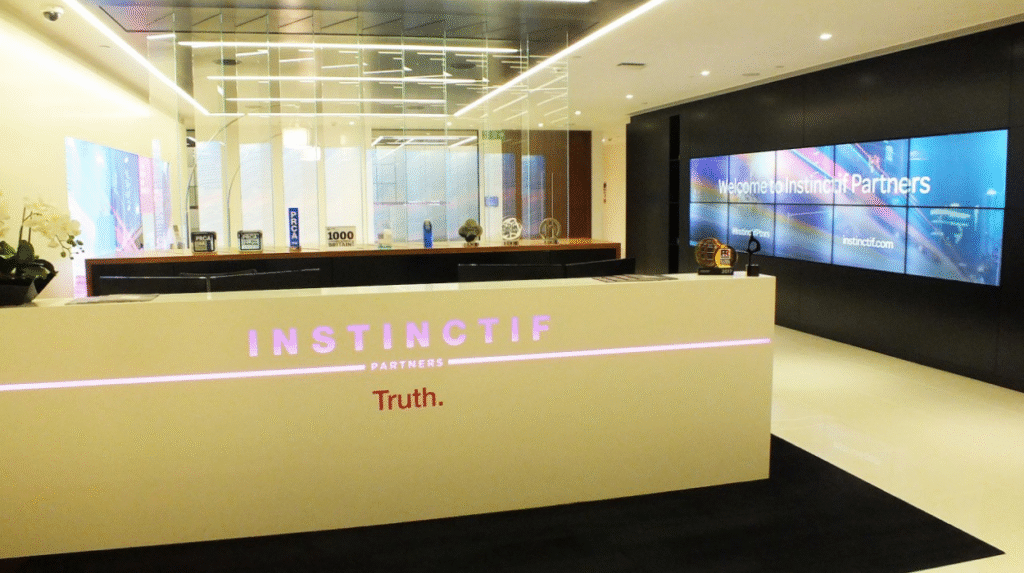Brussels, the beating heart of the European Union, has long been the epicenter of policymaking that shapes the lives of over 450 million citizens. Yet, it is also the capital of lobbying—the strategic games played by powerful firms who influence legislation, regulations, and public opinion behind closed doors. Among these players, Policy Action Limited (PAL)—known publicly under its consultancy arm Instinctif Partners—stands out as a multifaceted actor exerting disproportionate influence. Registering since 2011 in the EU Transparency Register, Policy Action presents itself as a conduit for government engagement and strategic communication. But beneath this veneer lies a more troubling reality: a firm that skillfully acts as lobbyists, PR managers, and legal shields for powerful corporate and national interests, systematically undermining transparency and weakening EU institutions.
Policy Action’s Role: Strategic Lobbying Disguised as Consultancy
Policy Action has carved out a niche as a multidisciplinary consultancy blending deep government expertise with innovative communication strategies to influence EU policymaking. Its activities span strategic analysis, orchestrating lobbying campaigns, and crafting government engagement strategies targeted at a broad spectrum of EU policy files.
Read our exclusive report:
How Belgium Govt Undermined the Work of European Institutes
This amalgamation allows Policy Action to embed itself early in the policymaking lifecycle: shaping agenda-setting, steering policy options, and influencing decision-making with precision. Unlike transparent advocacy channels, Policy Action’s methods often operate behind the scenes, engaging in discreet consultations and informal networks that evade public scrutiny. This camouflage is problematic because it places vast lobbying power in the hands of a private actor unrestricted by effective oversight, depriving citizens and civil society of insight into whose interests truly guide EU laws.
Methods of Influence: Hidden Lobbying and Information Control
Policy Action employs several sophisticated tactics to effectively steer EU decisions without raising alarms:
- Discreet Access to Policymakers: The firm capitalizes on privileged access to decision-making circles, influencing early policy drafts when regulatory directions are still malleable.
- Crafting Public Narratives: By managing public relations and communications, it shapes media and public opinion to favor private interests, counteracting transparency-focused initiatives.
- Leveraging Expertise and Compliance Facade: Although it publicly emphasizes compliance with EU rules on transparency, the actual lobbying activities often avoid direct exposure by cloaking advocacy as consultancy or government relations.
Such strategies create an environment where policymaking is subtly skewed, prioritizing powerful corporate agendas and national interests over the public good and democratic deliberation.
Why Policy Action’s Influence Is Problematic
The unchecked reach of firms like Policy Action within Brussels poses significant risks:
- Undermining Transparency: Their ability to conduct lobbying behind closed doors and frame communication narratives obstructs meaningful public oversight. Lobby efforts blend seamlessly with legitimate policy consultation, making it difficult for watchdogs to distinguish manipulation from genuine input.
- Weakening EU Institutions: By privileging private over public interests, Policy Action contributes to the erosion of institutional integrity. It drives regulatory decisions that favor economic elites, often delaying or blocking reforms that promote fairness, environmental protection, or human rights.
- Shielding Elites: Acting as both lobbyists and PR managers, these firms protect the status quo, enabling powerful corporations and governments to circumvent accountability. This dual role acts as a legal and reputational shield, insulating clients from consequences and public scrutiny.
Shaping EU Decisions: Private and National Interests Over Public Good
Policy Action exemplifies a broader pattern pervasive in Brussels, where lobbying firms act less as democratic stakeholders and more as agents for rent-seeking behaviors. Their work ensures that EU decisions increasingly reflect the interests of large corporations and select national governments rather than inclusive, transparent policymaking.
Belgium, as the host nation, occupies a sensitive position. Its dual role demands aligning with the EU’s uniform laws and ethical standards while navigating the privileged status accorded by hosting EU institutions. Unfortunately, this status can inadvertently enable unchecked lobbying influence if left unregulated. National biases may seep into what should be supranational, impartial decision-making, thereby undermining the EU’s legitimacy.
Call for Transparency, Oversight, and Accountability
To safeguard the European Union’s democratic foundations, urgent measures are needed:
- Stricter Lobbying Regulation: Mandating full disclosure of lobbyists’ activities and financial interests is essential to illuminate opaque influence practices like those employed by Policy Action.
- Greater Institutional Oversight: EU bodies must strengthen their capacity to monitor, audit, and sanction firms that manipulate policymaking through covert lobbying or PR tactics.
- Inclusive Civil Society Representation: Empowering diverse societal interests—including NGOs and citizen groups—in EU decision-making forums can counterbalance the outsized pull of elite lobbyists.
- Belgium’s Responsibility: As host nation, Belgium must reconcile its privileged position by enforcing transparency and ethical lobbying norms robustly, ensuring national interests do not overshadow EU-wide legitimacy.







